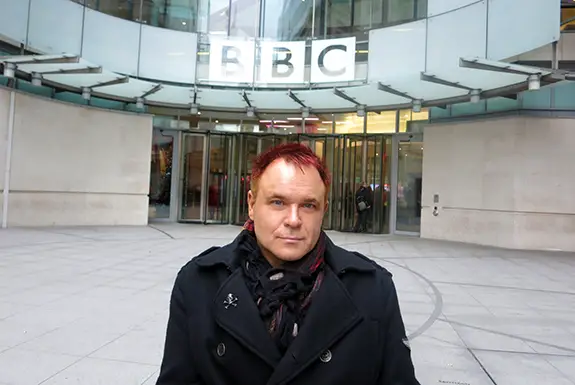
Disability and TV: is it time for our close up?
Earlier this year Disability Horizons ran an interview with the Shannon Devido where she demands to see more strong disabled women on TV. While I wholeheartedly agree with her, I think it’s a wider issue than that. I think we need to see more strong disabled people on TV no matter what their sex or sexuality, colour or age. We just need to see more disabled people on our screens full stop.
Throughout the history of TV drama, disabled people, in the large part, are nothing more than an occasional dramatic interlude where an already existing character has to battle with disability. This normally only features in a few episodes, at which point they either leave the series, die, commit suicide or even find themselves cured of what we all know to be an incurable condition.
I myself experienced this way back in 1991, when I appeared in Channel 4’s Brookside, making me the first disabled actor to appear in a UK soap. If you blinked you missed me, as I was only in one episode. Then in 1992 the BBC made a bold move and booked my mate Julie Fernandez in Eldorado as a regular member of the cast. Here character, Venessa Lockhead, was there every week, and had real story lines. Could thing be changing? Well, no. Things soon returned to normal, and disability slowly vanished from our screens.
Recently however, things do seem to be changing. Not bad seeing we made the first steps over 20 years ago, but let’s not be negative. Now all of the major soaps have had regular disabled characters in over the last few years, and some are still there today. Don’t ask me who, as I can’t stand soaps.
A show I do love and watch religiously is Silent Witness, so it made my day when disabled actor and comedienne Liz Carr joined the cast. She is one of the first examples of inclusive casting on our screens, where a character outline does not mention disability but a disabled actor is cast to play that role.
This is something that disabled actors have been fighting for for years now. So it is doubly superb to see Liz on our screens as not only does it mark another brilliant disabled actor getting a break, but it will hopefully be the turning point in how disabled people are portrayed in future. No more will we only be ‘disabled’, but we will be normal people who happen to have an impairment! Trust me this is really big. Imagine seeing a drama where the computer geek is in a wheelchair, or the travel agent is blind, or… well you get the point.
At the end of last year the TV industry further showed it’s commitment to the idea of inclusive casting by holding an casting event for disabled actors. The event was put in place by Equity’s Deaf and Disabled Members Committee, of which I am chair, and the Creative Diversity Network to prove to the industry that there are many talented deaf and disabled actors out there waiting to be cast.
As the chair of the committee, I was not involved in putting the event on, but I also auditioned as one of the over 70 actors seen over the two day event. I don’t know if anything will come of it, but it allowed the industries top casting directors to meet and work with the top disabled acting talent around. So hopefully soon our screens will be graced with more disabled characters.
There is also one thing you can do, dear reader. Write to the TV companies and ask why there aren’t more disabled actors on TV. Demand that you want to see better representation and push for more inclusive casting. If they realise that there is a real desire to see a more inclusive approach to casting in their dramas, then things may improve even further. One thing is for sure, I think we might have seen the end of a non-disabled actor playing disabled… or have we?
By Mik Scarlet
Check out…
• Q&A with Rick Edwards: the Paralympics and beyond
• Calling all budding disabled film makers!
• Step into Dance: where disabilities aren’t important
Are you a budding actor, or have you had experience of being in the limelight? We’d love to hear about it. So get in touch by messaging us on Facebook, tweeting us @DHorizons, emailing us at editor@disabilityhorizons.com or leaving your comments below.
